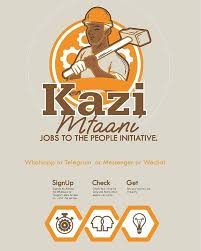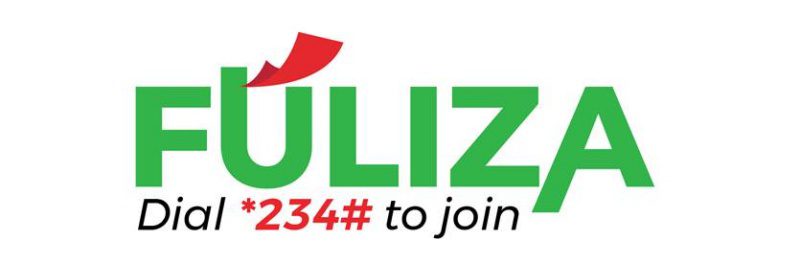A number of young people in Kenya who gained employment through the Kenyan government’s stimulus program (called Kazi Mtaani) are reportedly finding it impossible to withdraw any money paid through their mobile money wallets. This is because the mobile lines linked to those mobile money wallets, were blocked as a result of their inability to pay back their Fuliza overdraft loans.

Individuals who ae hired thorough the Kazi Mtaani programme, the youth are employed for a total of eleven (11) days. During this employment period, they are paid and at a rate of 455 Kenyan Shillings per day. This is reportedly 30 percent lower than the 650 Kenyan Shillings daily amount that which was paid on the 29th of April 2020 when the Kazi Mtaani short-term employment programme was first launched.
Those who attempted to bypass the system by giving the Kenyan government the phone numbers of their family members and relations in order to avoid repaying their debts, were also blocked because the numbers provided for payment did not match with the numbers in their personal details.
According to a report by the National Assembly Committee on Labour and Social Services the situation with Fuliza is proof of young people’s overdependence on mobile loans as a result of their relatively easy accessibility especially with regards to smaller amounts of money. The downside however, is that the interst rates are much higher. Especially when compared to saccos and banks.
It also made it known that “Some youth had blocked or frozen numbers due to having taken Fuliza loan from Safaricom,” adding that, “Some used IDs that belong to other family members. The challenge is that the details provided do not match their ID numbers, resulting in pay delay.”
The report is coming after a large number of young people who have raised the alarm over various delayed payments.
Today, a sizeable number of young people depend heavily on Fuliza which is Safaricom’s credit service that allows users to complete M-PESA transactions when they have insufficient funds in their M-PESA wallet account(s). Due to the fact that Fuliza is primarily attached to Safaricom’s mobile money service; M-PESA it is by default designed to debit the outstanding or owed amount within 24 hours.

In January 2019, Fuliza was introduced into the Kenyan market by telecommunications giant; Safaricom. It has grown increasingly popular among a large number of individuals in the lower income earners bracket i.e those who need loans of 2,000 Kenyan Shillings and below for their various daily needs. These category of Fuliza users, usually settle their debts from salaries or wages received as well as money made from sales or other avenues.
The facility fee for Fuliza stands at 1.083 percent. While that looks like a small percentage, it comes up to 395.2 percent annually. This is according to Business Daily Africa. It shows just how high the cost of patronizing short-term credit services on a regularly basis is. This is a far cry from the 12 percent to 14 percent annual rates that comes with getting loans from saccos and banks. Only downside, is that you need to have a source of income that is steady.
The ongoing coronavirus pandemic is the reason why the Kenyan government decided to carry out Kazi Mtaani payments via Safaricom’s super popular mobile money service platform; M-PESA as it needed a method that was both easy, convenient and able to significantly lower the need to handle physical money, which in turn lowers the chances of catching the coronavirus.
Various surveys overtime have revealed that individuals who utilize mobile loans shuffle from one mobile loan provider, to the other and many times end up on paying back any of the lenders.
In the six (6) months up to June 2019 Fuliza for example, provided an estimated figure of 81 billion Kenyan Shillings in loans. This an indication of just how large and almost insatiable the demand for mobile loans has grown in Kenya.

The Housing Principal Secretary; Charles Hinga last week, reassured the young people and pledged that all legitimate claims would be undertaken as soon as all the county implementation committees have verified their details against returns coming from the paying agency.
According to Charles Hinga, “Payments for workers under the Kazi Mtaani programme are made via mobile money and it has been noted that some workers’ details may have had errors which resulted in their payments not going through.”
Are there any other topics, news or categories that you would like us to write on? Feel free to reach out to Mpesa Pay in the comment section.


